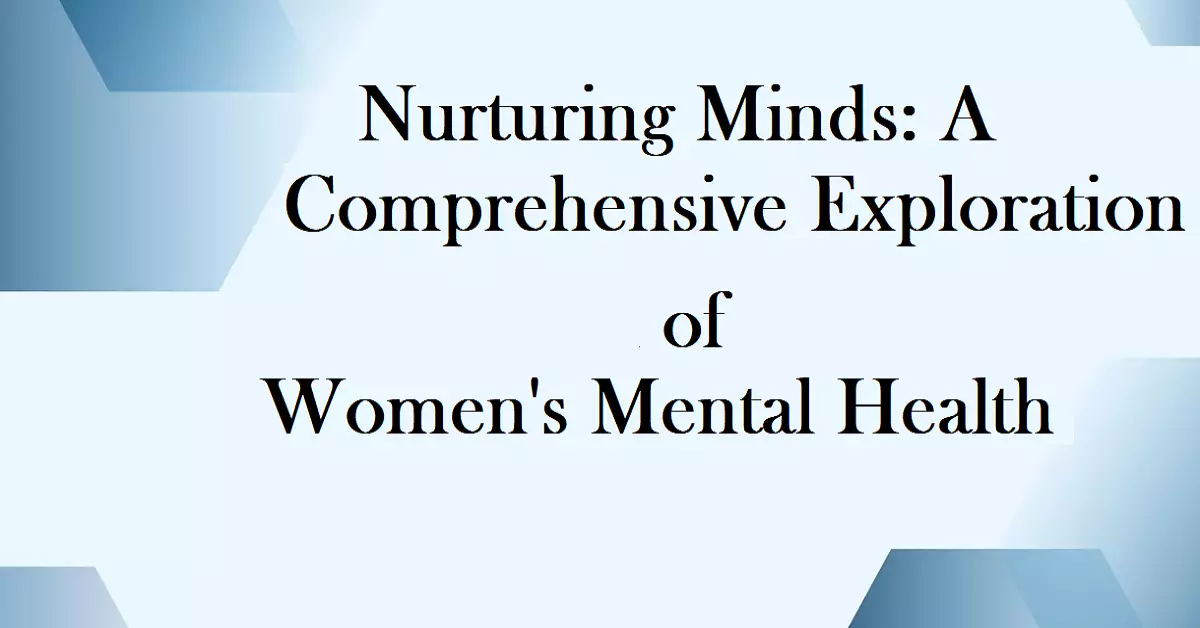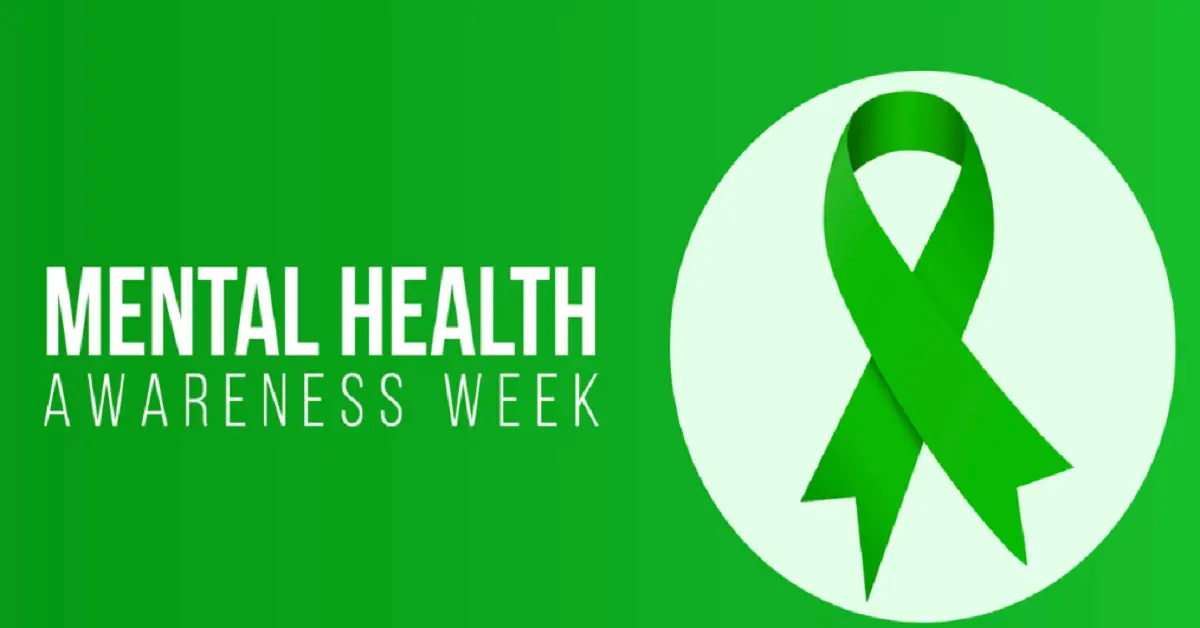Nurturing Minds: A Comprehensive Exploration of Women’s Mental Health
Introduction
Women’s Mental Health Month serves as a dedicated and impactful period aimed at raising awareness about the unique challenges women face concerning their mental well-being. This month-long initiative is a crucial step toward understanding, addressing, and supporting the mental health needs of women. In this comprehensive exploration, we delve into the significance of Women’s Mental Health Month, the definition and factors influencing mental health, the prevalence of mental health issues among women, and various aspects that shape their mental well-being.
Brief Overview of Women’s Mental Health Month
Women’s Mental Health Month, typically observed in [mention specific month], is an annual campaign designed to shed light on the mental health issues that disproportionately affect women. It serves as a platform for advocacy, education, and destigmatization, fostering a collective effort to prioritize and address the mental well-being of women. Through a myriad of events, campaigns, and discussions, this month seeks to empower women by providing them with knowledge, resources, and support.
Importance of Addressing Women’s Mental Health
Understanding and addressing women’s mental health is of paramount importance for several reasons. Women, due to various biological, societal, and cultural factors, experience unique mental health challenges that necessitate specific attention. By recognizing and addressing these challenges, we not only enhance the overall well-being of women but also contribute to the betterment of families, communities, and society as a whole.
Understanding Mental Health
Definition of Mental Health
Mental health is a state of well-being that encompasses emotional, psychological, and social aspects of an individual’s life. It involves the ability to cope with stress, build and maintain positive relationships, work productively, and make informed decisions. A holistic understanding of mental health goes beyond the absence of mental disorders and emphasizes the promotion of positive mental well-being.
Factors Affecting Mental Health in Women
Several factors influence the mental health of women, ranging from biological and hormonal aspects to social and cultural determinants. Hormonal fluctuations, life transitions, societal expectations, and gender-based violence are some of the unique factors that shape women’s mental health experiences.
Prevalence of Mental Health Issues in Women
Statistics on Mental Health Disorders Among Women
Statistical data reveals a significant prevalence of mental health disorders among women. Mood disorders, anxiety disorders, and eating disorders are some of the common challenges they face. Understanding the scope and magnitude of these issues is essential for developing targeted interventions and support systems.
Common Challenges Women Face
Women encounter a variety of challenges that contribute to mental health issues. Gender-based discrimination, unequal access to resources, and the burden of societal expectations are among the challenges that impact women’s mental well-being. Addressing these challenges requires a multifaceted approach that encompasses social, economic, and policy dimensions.
Impact on Daily Life
Mental Health Affects Daily Activities
The impact of mental health on daily activities is profound. It can influence relationships, work performance, and overall quality of life. Women navigating mental health challenges often find themselves contending with difficulties in maintaining personal and professional responsibilities, highlighting the interconnectedness of mental well-being with daily life.
The Role of Societal Expectations
Societal expectations, often shaped by cultural norms and gender roles, play a significant role in exacerbating mental health challenges for women. Unrealistic standards of beauty, career expectations, and the pressure to conform to traditional roles can contribute to stress, anxiety, and depression.
Stigma Surrounding Women’s Mental Health
Addressing Societal Stigma
Despite growing awareness, societal stigma remains a formidable barrier to women seeking help for mental health issues. Efforts to address this stigma involve challenging stereotypes, debunking myths, and fostering empathy and understanding within communities.
Encouraging Open Conversations
Creating a culture of open and supportive conversations is crucial for breaking down the stigma associated with women’s mental health. Encouraging dialogues that normalize discussions about mental well-being helps create an environment where women feel comfortable seeking help without fear of judgment.
Unique Challenges Faced by Women
Hormonal Influences on Mental Health
Hormonal fluctuations, especially during menstruation, pregnancy, and menopause, can significantly impact women’s mental health. Understanding these biological factors is essential for tailoring mental health support to women’s specific needs.
Life Transitions and Mental Well-Being
Life transitions such as childbirth, career changes, and caregiving responsibilities can bring unique challenges to women’s mental well-being. Adequate support during these transitions is crucial for preventing and addressing mental health issues.
Support Systems for Women
Importance of a Strong Support Network
Building and maintaining a strong support network is fundamental for women’s mental health. Family, friends, and community connections play a pivotal role in providing emotional support, understanding, and practical assistance during challenging times.
Seeking Professional Help
Recognizing the importance of professional help is a critical step in supporting women’s mental health. Mental health professionals, including therapists, counselors, and psychiatrists, offer specialized assistance and interventions tailored to individual needs.
Self-Care Strategies
Promoting Self-Care for Mental Well-Being
Promoting self-care is an integral aspect of maintaining mental well-being. Women are encouraged to prioritize self-care activities that nurture their physical, emotional, and psychological health. This includes setting boundaries, practicing mindfulness, and engaging in activities that bring joy and relaxation.
Practical Tips for Women to Prioritize Mental Health
Practical tips for women to prioritize mental health include developing healthy routines, engaging in regular physical activity, maintaining a balanced diet, getting adequate sleep, and setting realistic goals. Small, consistent actions contribute significantly to overall mental well-being.
Community Initiatives for Women’s Mental Health
Overview of Organizations and Campaigns
Numerous organizations and campaigns are dedicated to promoting women’s mental health. These initiatives focus on awareness, education, and advocacy, offering resources and support to women facing mental health challenges.
How Communities Can Contribute
Communities play a crucial role in contributing to women’s mental health. By fostering supportive environments, organizing awareness campaigns, and providing accessible resources, communities can contribute to breaking down barriers and reducing the stigma associated with mental health.
Cultural Perspectives on Women’s Mental Health
Exploring Cultural Influences on Mental Health
Cultural factors significantly influence women’s mental health experiences. Beliefs, traditions, and societal expectations vary across cultures and can impact how mental health is perceived and addressed. Understanding these cultural nuances is essential for providing culturally sensitive mental health support.
Cultural Sensitivity in Mental Health Discussions
Approaching mental health discussions with cultural sensitivity is vital to ensuring inclusivity and effectiveness. Mental health interventions should be tailored to respect and align with diverse cultural perspectives, recognizing that a one-size-fits-all approach may not be suitable.
Advocacy for Women’s Mental Health Rights
Highlighting the Need for Advocacy
Advocacy is crucial for advancing women’s mental health rights. This involves challenging discriminatory practices, advocating for policy changes, and promoting equal access to mental health services. By highlighting the need for advocacy, we can contribute to systemic changes that benefit women’s mental health.
Breaking Barriers in Mental Health Services
Systemic barriers often hinder women’s access to mental health services. Advocacy efforts aim to break down these barriers, ensuring that mental health services are accessible, affordable, and tailored to the diverse needs of women.
Incorporating Exercise and Nutrition
Role of Physical Health in Mental Well-Being
Physical health and mental well-being are interconnected. Regular exercise has been shown to have positive effects on mental health, reducing stress and improving mood. Likewise, nutrition plays a crucial role in providing the brain with the necessary nutrients for optimal functioning.
Tips for Maintaining a Healthy Lifestyle
Tips for maintaining a healthy lifestyle include incorporating regular exercise into daily routines, adopting a balanced diet rich in essential nutrients, staying hydrated, and getting sufficient sleep. These lifestyle choices contribute to overall well-being and support mental health.
Technology and Mental Health Support
Overview of Mental Health Apps and Online Resources
Technology has played a transformative role in mental health support. Mental health apps and online resources provide accessible and convenient platforms for individuals to access information, connect with support communities, and even receive therapy or counseling.
The Role of Technology in Breaking Barriers
Technology acts as a crucial tool in breaking barriers to mental health support. It facilitates remote access to resources, reduces the stigma associated with seeking help, and enables individuals to take proactive steps toward managing their mental health.
Success Stories and Role Models
Inspirational Stories of Women Overcoming Mental Health Challenges
Sharing inspirational stories of women who have overcome mental health challenges is a powerful way to break stigma and provide hope. These stories celebrate resilience, strength, and the diverse paths to recovery, inspiring others to seek help and pursue their own mental well-being.
Celebrating Resilience and Strength
Acknowledging and celebrating the resilience and strength of women who have faced mental health challenges contributes to destigmatizing mental health issues. It reinforces the message that seeking help is a sign of strength and that recovery is possible.
Conclusion
In conclusion, Women’s Mental Health Month serves as a vital platform for addressing the multifaceted aspects of women’s mental well-being. By understanding the unique challenges women face, breaking down societal stigma, and promoting supportive environments, we can contribute to a society that values and prioritizes women’s mental health. Ongoing conversations, advocacy efforts, and community initiatives are crucial for fostering a holistic approach to women’s mental well-being. As we reflect on the various dimensions explored in this discussion, it is imperative to encourage continuous dialogue and action to create a world where women can thrive mentally and emotionally.

